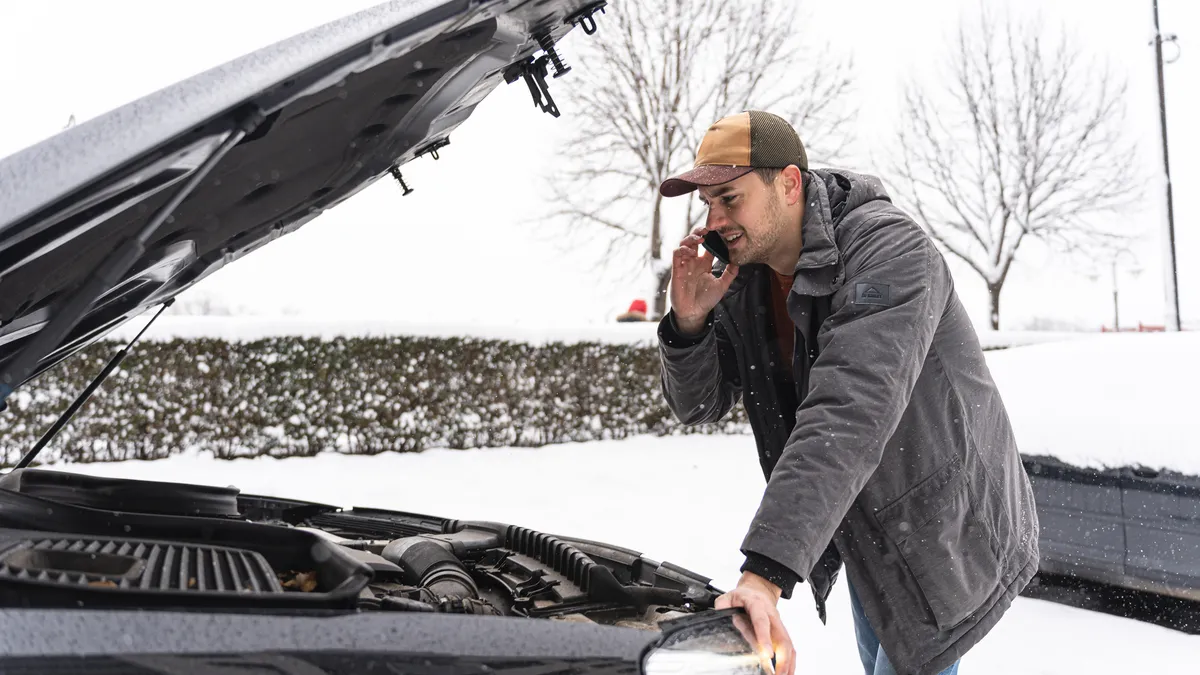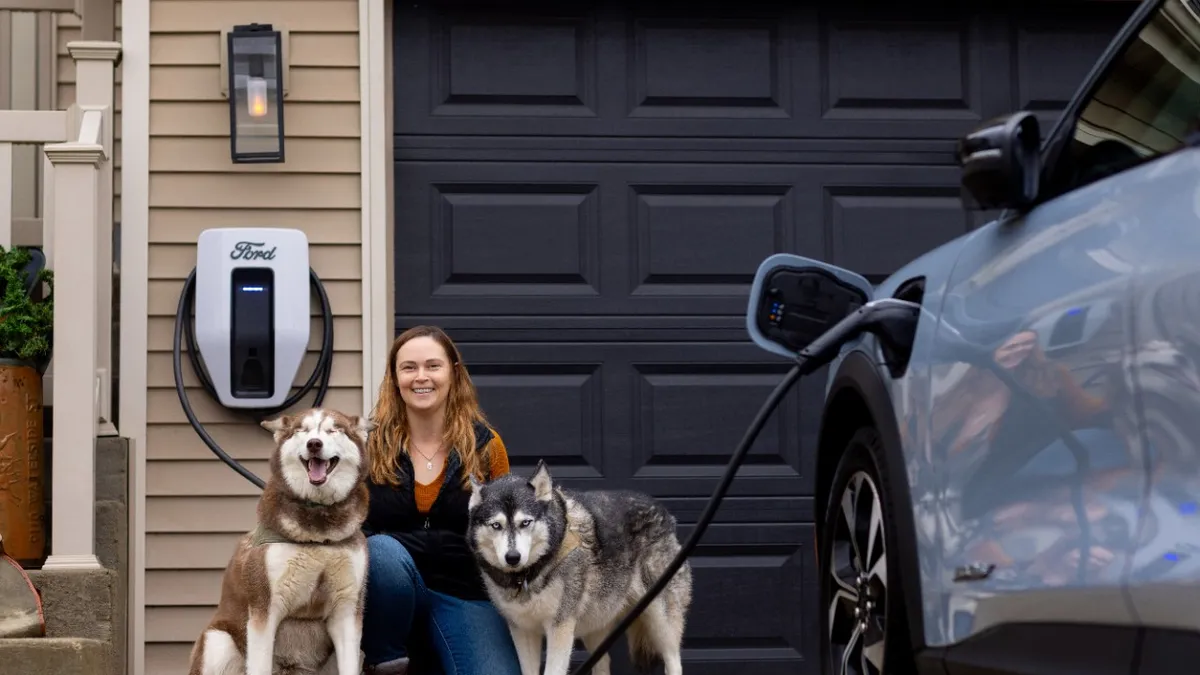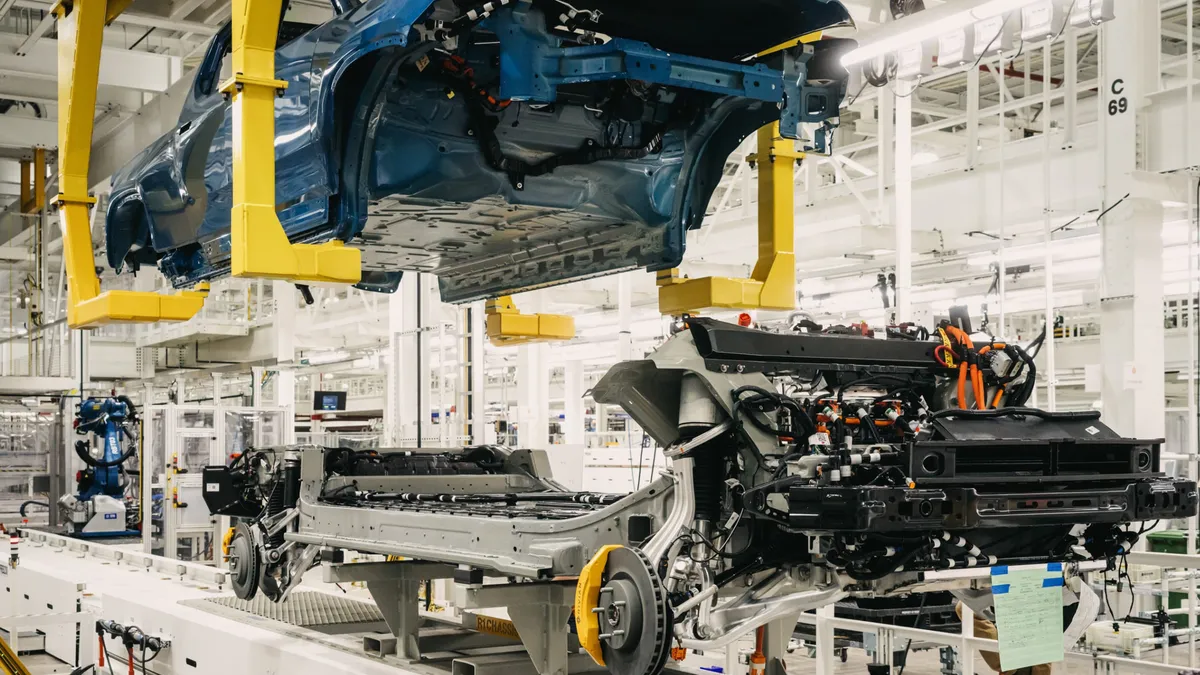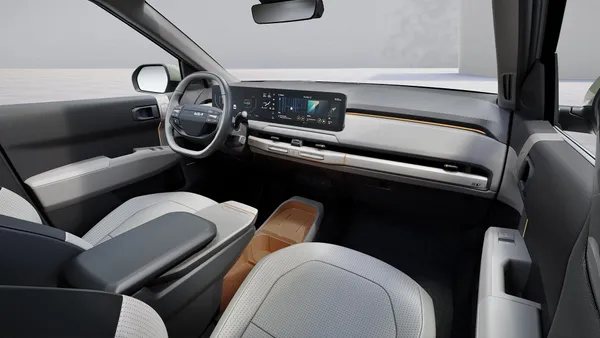Dive Brief:
- Vehicle owners are having issues with vehicle dependability after three years of ownership, according to the J.D. Power 2024 U.S. Vehicle Dependability Study released on Thursday.
- The number of problems per 100 vehicles reported between 90 days and after three years of ownership climbed from 12% in 2023 to 17% in 2024.
- The study indicates a decline in long-term dependability for two-thirds of the vehicle brands included in the study, including electric and hybrid vehicles.
Dive Insight:
Automakers continue to add more electronics and connectivity features to their vehicles to win over customers amid a technological arms race. However, all that technology comes at a cost: reliability.
The dependability study’s results usually match its Initial Quality Study, said Frank Hanley, senior director of auto benchmarking at J.D. Power, in a statement. However, the latest dependability study — based on responses from 30,595 original owners of 2021 model-year vehicles after three years of ownership — found a marked decline in quality compared with J.D. Power’s 2021 Initial Quality Study, which found a modest improvement.
“This can likely be attributed to the tumultuous time during which these vehicles were built, and owners are keeping their vehicles for much longer,” Hanley said. “Automakers must ensure new vehicle technology introduced today will still meet the customer’s needs years down the road.”
Lexus was the most reliable brand for the second year in a row
The latest dependability study looked at 184 problem areas across nine major vehicle categories: climate; driving assistance; driving experience; exterior; features/controls/displays; infotainment; interior; powertrain and seats.
The highest number of complaints were related to vehicle infotainment systems, including Android Auto/Apple CarPlay connectivity and voice assistant problems, according to J.D. Power, which reported 49.1 problems per 100 vehicles.
Vehicle exteriors, meanwhile, had the second highest number of complaints, with 6.3 PP100.
The study also found that electric vehicles, hybrids and plug-in hybrids have more problems than gas-powered vehicles, which mirrors the findings of a separate J.D. Power study released last September. For the fully electric models included in the study, 256 problems were reported for every 100 vehicles.
Premature tire wear was a big problem for drivers of EVs, with 39% of owners saying they had to replace tires over the past 12 months, which is 19 percentage points higher than owners of internal combustion engine vehicles.












